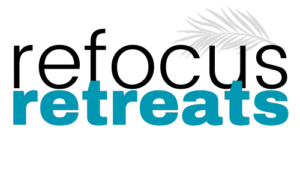Enhancing Entrepreneurial Success Results: The Impact of Retreat-Based Learning with the Hotseat Method
In the dynamic world of entrepreneurship, the pursuit of success calls for innovative learning strategies. A particularly noteworthy approach gaining momentum is the integration of spaced repetition and distributed practice. In simple terms, short learning sessions spread over an extended period of dedicated time.
We have seen the online course world evolve into online communities. The Hotseat Method is a logical next step.
What is the Hotseat Method?
These concepts, rooted in cognitive science, are reshaping the way entrepreneurs collaborate and learn, especially within online communities and Mastermind groups. I wanted to explore the intricacies of this approach and its application in a retreat model where six entrepreneurs engage in individual “Hotseat” sessions. As an educational leader, I see so many connections to how the brain learns and this method.
The future of how entrepreneurs learn is combining short, focused learning times with the Hotseat model in retreats. Instead of long study sessions or online courses without feedback, we’re breaking things into smaller, spaced-out learning chunks.
The Hotseat model is like giving each entrepreneur their special spotlight to work on their projects. This mix of strategies is different from the usual way of learning alone. It’s like a team effort, a boardroom, where everyone shares ideas and different views, creating a space for innovation.
This focused teamwork, combined with proven learning techniques, is all about getting real results. It’s a smart way of learning that’s not just about you but about the whole community working together for success. This collaborative style is shaping how entrepreneurs learn, making it more effective and community-driven.
Understanding the Science Behind Learning:
Coming from a teaching and learning background, I specialize in curriculum development. Specifically helping teachers document what they teach and how they teach it so that a program is horizontally and vertically aligned. It was always obvious when working with professionals the sessions I had planned well and the ones that fell flat. It happens.
How we manage the schedule matters. Shorter, spaced-out learning sessions are more effective than a single, prolonged session. For example, I prefer to divide a 60-minute learning session into three 20-minute segments spread over time. This method enhances long-term memory retention and facilitates the absorption of new concepts by reinforcing neural connections. There is actual science behind it. Dr. David Sousa, author of How the Brain Learns, is a scientist that is in expert in how the brain learns and this model of Primacy Recency Effect is referenced in his work extensively.
This concept comes from understanding how our brains store and remember information. For entrepreneurs, who typically have a myriad of ideas that can get pretty complicated, using this brain trick can be a game-changer. The Hotseat method, where each person’s time is focused on just one idea or piece at a time during a retreat, can be the key to success. It helps entrepreneurs tackle their complex thoughts in a more organized and effective way, making the most of their time and boosting their chances of finding success.
The Retreat Model: A Catalyst for Innovation and Collaboration:
Imagine a retreat setting where six entrepreneurs convene to share, learn, and grow. The retreat adopts a unique Hotseat session format, providing each participant with dedicated time to explore their projects, ideas, plans, or challenges and are guided by the questions, experiences and ideas of the group to better flush out the details and either find a solution or develop a plan of action. Here’s how spaced repetition and distributed practice can elevate the effectiveness of such an entrepreneurial retreat:
- Focus on the Challenge:
- Each participant engages in short, focused Hotseat sessions, ensuring attention is concentrated on specific challenges or projects.
- The hotseat focus reinforces the understanding and application of crucial entrepreneurial strategies to the problem or project.
- Harnessing Collective Intelligence:
- Entrepreneurs benefit from the diversity of thought within the group, gaining insights and perspectives that may not have emerged in a traditional, isolated learning setting.
- The varied experiences and expertise of each participant contribute to a rich learning environment.
- Structured Learning Paths:
- Retreat organization should be structured to allow for authentic engagement.
- Iterative Problem-Solving:
- The Hotseat sessions, spaced over the retreat period, encourage iterative problem-solving. Entrepreneurs revisit and refine their approaches, aligning with the distributed practice concept.
Conclusion:
Incorporating the Hotseat method for entrepreneurs is a strategic move toward optimizing learning and problem-solving. It takes the success business owners find in a professional community to the next level of finding success. As each participant takes their turn in the Hotseat, the collective intelligence of the group, coupled with neuroscience-backed learning principles, propels innovation and success.
By embracing this approach, entrepreneurs not only navigate the complexities of their ventures more effectively but also foster a collaborative and dynamic community of forward-thinkers. In the realm of entrepreneurship, where adaptability and creativity reign supreme, the integration of cognitive science principles into retreat-based learning models is a powerful catalyst for entrepreneurial brilliance.
I read this blog post Brain-based learning: 6 strategies to apply to your e-learning content and it got me to thinking about how retreats can be so impactful to entrepreneurs.

Are you looking to get in the Hotseat? Contact us to see if we have a retreat planned that would fit your journey. Retreats are planned with entrepreneurs who are of similar experiences so that everyone contributes based on their experiences.
